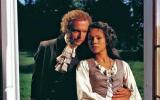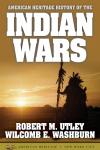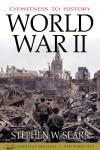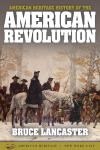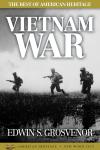Featured Essays
As we celebrate the 250th anniversary of American independence, our founding charter remains central to our national life, unifying us and paving the way for what we have long called “the American Dream.”
America’s extraordinary success is directly related to its unique form of government embodied in the Constitution.
America 250!
The Battle that Led to Victory at Yorktown | Fall 2019 - George Washington Prize Books, Vol 64, No 5
By Nathaniel PhilbrickLargely overlooked in histories of the Revolution, the Battle of the Chesapeake is in fact one of the most important naval engagements in history, leading to the American victory at Yorktown.

“Shall We Have a King?” | Fall 2025, Vol 70, No 4
By William E. LeuchtenburgSome delegates at the Constitutional Convention wanted a strong executive, while others feared the American president might become a king.

"The Sparck of Rebellion" | Winter 2010, Summer 2025, Vol 59, No 4
By Douglas BrinkleyBadly disguised as Indians, a rowdy group of patriotic vandals kicked a revolution into motion.
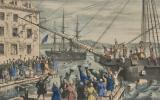
Glover and the “Indispensables” Save Washington’s Army | Spring 2024, Vol 69, No 2
By Patrick K. O'DonnellJohn Glover and the men of Marblehead saved the Continental Army several times, and then helped it cross the Delaware to victory at Trenton and Princeton.

John Dickinson: Forgotten Founder | Fall 2025, Vol 70, No 4
By Jane E. CalvertDickinson played a pivotal role in our Nation’s founding, from the Stamp Act to ratifying the Constitution, but his contributions are largely forgotten by history.

Classic Essays from the Archives
The Hawthornes In Paradise | December 1958, Summer 2025, Vol 10, No 1
By Malcolm CowleyNathaniel was poor and sunk in his solitude; Sophia seemed a hopeless invalid, but a late-flower love gave them at last “a perfect Eden.”

“Medic!” | November 1997, Vol 48, No 7
By Stephen E. AmbroseIn a hard war, theirs may have been the hardest job of all. Along with Army doctors and nurses, they worked something very close to a miracle in the European theater.

Did Sally Hemings and Thomas Jefferson Love Each Other? | Fall 2008, Summer 2025, Vol 58, No 5
By Annette Gordon-ReedTo call it a loaded question does not begin to do justice to the matter, given America’s tortured racial history and its haunting legacy.
